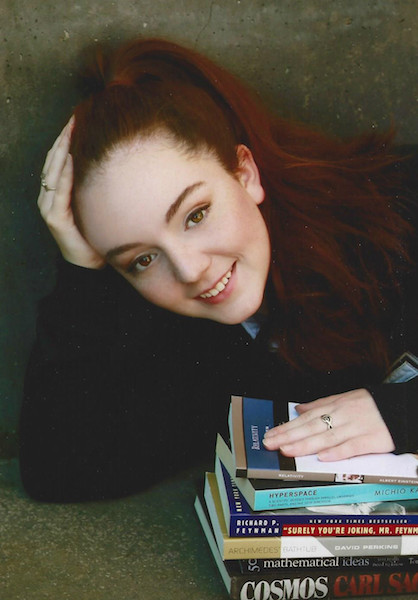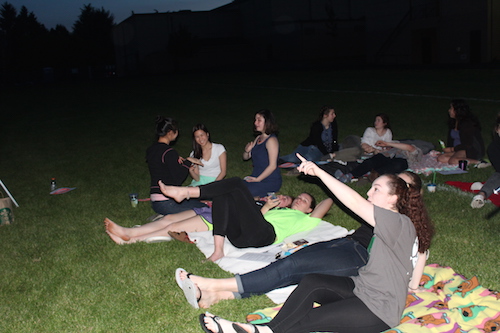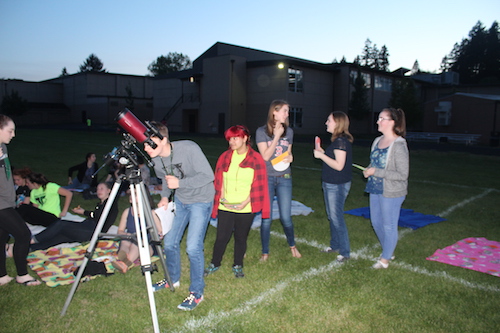by Roberto Molar Candanosa
- Created: Wednesday, September 21 2016 01:33
 In September 2014, after attending a meeting by Portland, Oregon-based Rose City Astronomers club, then high school junior Kasey Yoke felt motivated to start an astronomy club at her high school in Tigard, Oregon. Fast-forward two years: Yoke is now en route to Oregon State University’s Honors College to pursue degrees in mathematics and theoretical physics. Her astronomy club? It grew to about 100 members, led by Yoke to fundraise and donate $1000 to AWB.
In September 2014, after attending a meeting by Portland, Oregon-based Rose City Astronomers club, then high school junior Kasey Yoke felt motivated to start an astronomy club at her high school in Tigard, Oregon. Fast-forward two years: Yoke is now en route to Oregon State University’s Honors College to pursue degrees in mathematics and theoretical physics. Her astronomy club? It grew to about 100 members, led by Yoke to fundraise and donate $1000 to AWB.
At the Rose City Astronomers meeting Yoke attended, Astronomers Without Border’s President Mike Simmons participated as a guest speaker. Yoke said that his message stuck with her, especially because he emphasized that people all over the world share the same sky despite cultural differences. “Astronomy is universal, no matter where you are on Earth,” she said. “It is my hope that this commonality will eventually help create a more peaceful and cooperative world.”
Initially, Yoke thought to raise funds to buy astronomy equipment for her club. But after a couple of community members donated two telescopes, she decided to raise funds to help AWB. The club raised funds through simple activities like t-shirt sales and graduation cord sales. Community members also contributed with small donations, she said.
 As a high schooler, Yoke’s motivations to start her own astronomy club went beyond gaining leadership experience to seem attractive in college applications. She wanted to start a club for students to simply enjoy stargazing and learning about the cosmos. However, at first she struggled to attract members. Only five students attended her first meeting, and after that, nobody came back. “I actually considered ending the club,” she said.Instead, Yoke decided to make some changes to make the club more viable and appealing to her classmates. She promoted the club in school activities and offered incentives like graduation cords for students involved with the club.As more and more students signed up for the club, they got more than graduation cords. Yoke led events that ranged from lecture-style informal sessions about topics like black holes, constellations, and gravitational waves. She also organized space-themed Halloween parties and stargazing events where students saw the International Space Station and Jupiter (Galilean moons included).
As a high schooler, Yoke’s motivations to start her own astronomy club went beyond gaining leadership experience to seem attractive in college applications. She wanted to start a club for students to simply enjoy stargazing and learning about the cosmos. However, at first she struggled to attract members. Only five students attended her first meeting, and after that, nobody came back. “I actually considered ending the club,” she said.Instead, Yoke decided to make some changes to make the club more viable and appealing to her classmates. She promoted the club in school activities and offered incentives like graduation cords for students involved with the club.As more and more students signed up for the club, they got more than graduation cords. Yoke led events that ranged from lecture-style informal sessions about topics like black holes, constellations, and gravitational waves. She also organized space-themed Halloween parties and stargazing events where students saw the International Space Station and Jupiter (Galilean moons included). When Yoke graduated, Tigard High’s astronomy club was as popular as her school’s branches of Key Club and National Honor Society, two high school clubs prominent nationwide. Along with her, 50 seniors earned graduation cords in 2016 for their involvement with club. Yoke said the club is set to continue its success under a new president, who is also passionate about astronomy and plans to major in it in college.
When Yoke graduated, Tigard High’s astronomy club was as popular as her school’s branches of Key Club and National Honor Society, two high school clubs prominent nationwide. Along with her, 50 seniors earned graduation cords in 2016 for their involvement with club. Yoke said the club is set to continue its success under a new president, who is also passionate about astronomy and plans to major in it in college.
Yoke’s determination was certainly essential for the club’s success, something she thinks others considering forming their own clubs can achieve. “People who want to create their own clubs definitely have to be committed to its success and have a clear idea of how they want their club to operate,” she said. At her club, for example, Yoke emphasized that even a relatively inexpensive set of binoculars can open up the universe to the casual observer.







